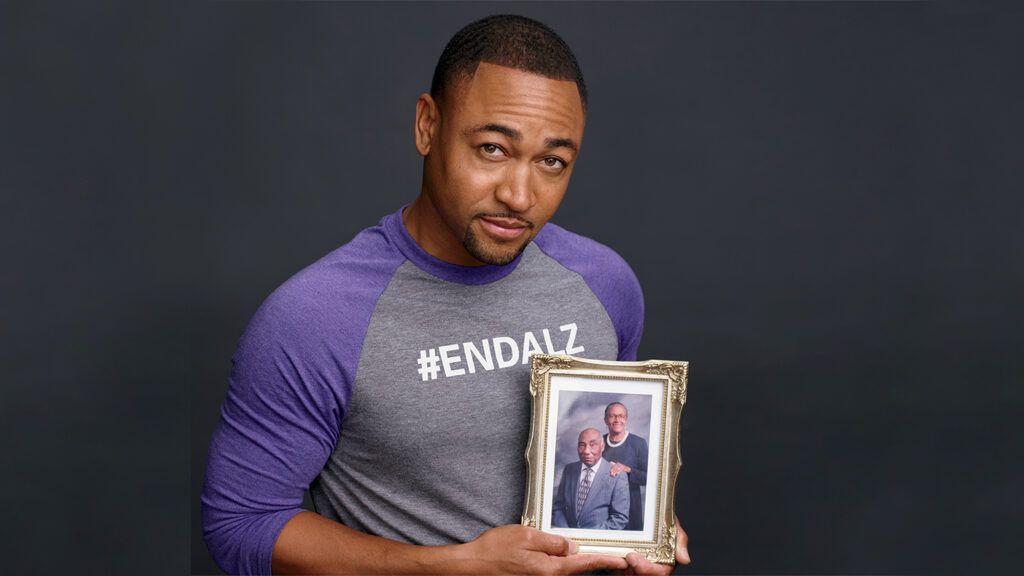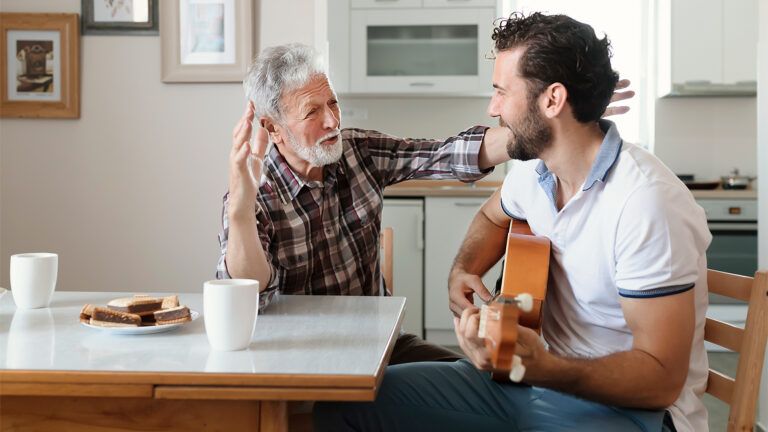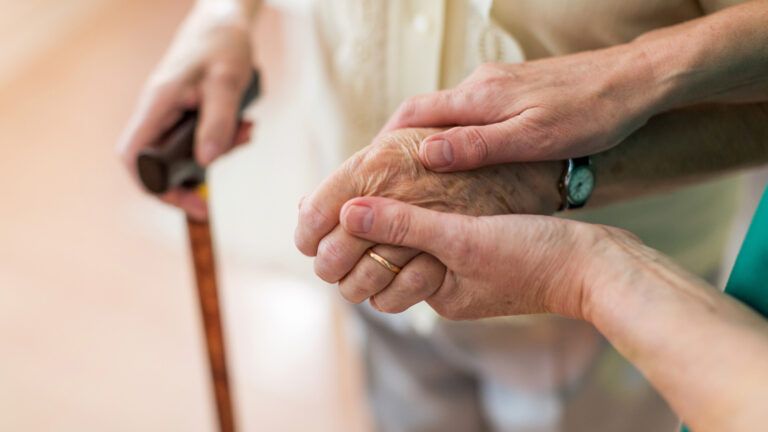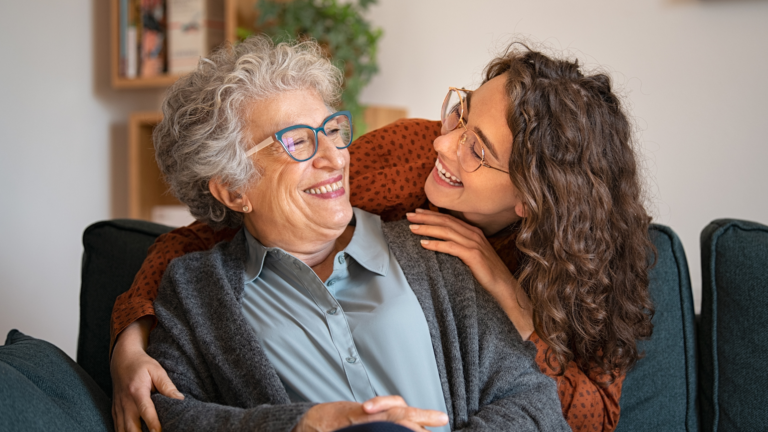Tell us about your grandmother, Sadye Daggs.
My grandma was the best grandma. She was all about family. She sacrificed for whatever her kids and her grandkids needed. She was always available. I had a special relationship with her, and I’m sure each one of my cousins thought that they had a unique relationship with her too. When I was a kid, I used to get pink eye and nosebleeds a lot in school. My mom and dad both worked during the day, so the person called to come get me was Grandma Sadye.
That was a special time for just the two of us after she picked me up. I think she cherished having that time with me too. I got to learn who she was. She had an excellent sense of humor. Very quick. Very intelligent and definitely a woman of faith, who not only shared the Word with us but also made sure we formulated our own relationship with God.
She was the organist, soloist and choir director at our church, Christ Second Baptist in Long Beach, California, for more than 50 years. She had some formal training but played very much by ear, and she would make sure that everyone was in proper key. She was the first Black PTA president at the school here. And Grandma Sadye was a loving wife to my grandfather Percy. She did so much for so many.
How did you find out she had Alzheimer’s?
It was five or six years after we lost my grandfather, the love of her life, that we started to notice something was off. We would all go to Grandma’s house on Sunday. She would make these extraordinary meals. She cooked everything—pies, mac and cheese, yams, greens, turkey, chicken, you name it. Her sweet potato pie was my favorite. She would occasionally leave the stove on, which was one of the biggest alarms for us.
I noticed she was repeating thoughts and statements. She was getting lost while driving in our small community, and we noticed little dents in the car. I had never seen confusion in my grandmother’s eyes before. But I would see it when she couldn’t find something that was close by or when she sometimes didn’t know who I was. Moments that hurt my heart.
In our own time, everybody said, “Hey, you know, this is getting worse than we thought.” Doctors first said she had early-stage dementia. Within a couple years, the diagnosis became Alzheimer’s.
What did you do?
My family is close. My dad, his four sisters and my cousins and I communicate well through good times and bad. We try to hold each other accountable and show up for each other. If you have an issue, we’re going to see you through it like my grandmother did for us. Especially in my teenage years, she made sure I was hanging with a good crowd.
She was always watching how you carried yourself and spoke. She guided you, making sure you knew how to get back on track. She did that for her children, for us grandchildren. We’ve always rallied around each other, and we rallied around her.
My dad and my aunts had many meetings to determine what was best for Grandma. They knew how much she loved her home and wanted to try to keep her there. We were all on board with making sure we were there for her the way she had always been for us. Whoever was capable of staying with her would stay with her for longer than overnight. I was the first of the family to do it.
You were 22 when you became a caregiver for your grandmother for several months. How did that go?
It’s a different experience than going over on Sunday or checking in on a weekday and seeing good moments and being encouraged by that. It’s not until you stay overnight for an extended period of time that you discover exactly what she’s going through. I kept close enough that I was able to recognize when I had to step in and help her do the things that used to be routine for her.
I enjoyed doing for her what she had done for us. Making meals, helping her find things, making sure she was safe. If you knew my grandmother, she was tough. It’s hard when your grandbaby is telling you what you’re not gonna do.
I would get in there and make it a shared experience. I would watch whatever she was watching and engage with her, go through any mental hurdles she had to remember or sustain a way of thinking. If she jumped from one thing, I jumped with her. If she jumped back and was in a pleasant cognitive moment, then we shared that.
Were there moments that brought you even closer?
This time gave me more insight into who my grandmother was. I wanted to make sure she had her space. There were times when she definitely wanted to do things on her own.
There were times when I was staying in the room that my dad and his sisters used to share in the back of the house. Sometimes Grandma Sadye would come in and talk to me as if I were my father or grandfather. Sometimes she would weave in and out of who she was talking to. That was tough.
Sometimes she would share stories about her life and I would call my dad later and ask, “Did this really happen?” So I learned a lot about our family’s history when Grandma would reminisce. I stayed with her as long as I could. Our family members all took turns. But as the Alzheimer’s progressed, it got to the point where she needed more help and we got her to an assisted living facility and then a live-in facility.
How did your faith play a role?
God gives you different gifts, and as far as grace goes, we give that back in service to him for his people. My grandmother, along with my mother, was a significant example of this in my life. Grandma didn’t miss a rehearsal, let alone a Sunday service, in her commitment to her faith. She showed up and shared whatever God gave her.
That was the spark for me as I navigated what my gifts were in the space that I felt God was placing me in, which was acting. I do my best with opportunities to tell stories on camera that entertain, inform and inspire, but what’s most important is the story I tell with my life off camera. A life of love and service to others. That’s who my grandma was.
I think that was always what drove me. That it’s not about me. My grandma inspired me in this field when I read Martin Luther King Jr.’s “I Have a Dream” speech out loud in church at age 10. Everyone applauded. My grandmother was so excited. And I felt I was doing something in service for the Lord. I did more public speaking after that. Grandma nurtured me every step of the way.
Do you have a favorite Bible verse that you lean on?
Matthew 5:16: “Let your light shine before men, that they may see your good works….” That Scripture is one of those things that I always go to. Even when I’m struggling, I smile and try to be a light or a positive presence wherever I go because I know that I’m not the only one who’s going through something. I know that the God I serve, who gets me through all the things that I do get through, is a promise keeper.
I just try to be a light to others as much as possible so that, if people see anything good in me, I can tell them that it isn’t me—it’s all the love of God.
Is there one memory of your grandmother that makes you smile?
Funny story. I fell in love with this beautiful woman, Jontille, in 2007. She and I went to visit Grandma. I prayed we’d have a good day. Sometimes that was just Grandma knowing who we were. When she met Jontille, who is my wife now, Grandma was excited, but she looked at Jontille and said, “I know that’s your boyfriend. But that’s always gonna be my Percy.” That was one of the last clear moments I ever had with her. In that moment, I knew she knew who I was.
How has participating in the Alzheimer’s Association Walk to End Alzheimer’s helped you and your family?
Participating in the Alzheimer’s Association Walk to End Alzheimer’s honors our grandmother and her life of service. We started the walks after she passed in 2013 and have done them every year since. We want to be able to support those who are going through what we were going through. It’s been a way for us to cope and heal and come together as a family.
For more inspiring stories, subscribe to Guideposts magazine.





